Buy Natclovir : Ganciclovir 500 mg Injection Online
$38.38
Brand Name : Natclovir
Composition : Ganciclovir
Manufactured by : Natco Pharma Ltd.
Strength : 500 mg
Form : Injection
Packing : Pack of 1 Vial
Prescription Required *
Natclovir is a prescription medication that contains Ganciclovir as the active ingredient. It is manufactured by Natco Pharma Ltd and comes in the form of an injection. The medication is used to treat various viral infections, especially those caused by cytomegalovirus.
Uses:
Natclovir is primarily used for the treatment of cytomegalovirus infection in patients who have undergone an organ transplant. It is also used to treat other viral infections, such as herpes simplex virus and Epstein–Barr virus.
How to Use:
Natclovir should be administered by a healthcare professional as directed. It is usually given as an intravenous infusion over a period of one hour. The dosage and duration of treatment may vary depending on the patient’s condition and response to the treatment.
Storage Conditions:
Natclovir should be stored at room temperature, away from direct sunlight and moisture. It should be stored out of the reach of children and pets. The medication should be used before the expiration date mentioned on the packaging.
Mechanism of Action:
Ganciclovir, the active ingredient in Natclovir, works by blocking the replication of viral DNA, thus preventing the virus from multiplying and spreading in the body. This helps to stop the spread of the infection and allows the body’s immune system to fight off the virus.
Precautions:
Before taking Natclovir, it is important to inform the healthcare provider about any known allergies, medical conditions, or medications currently being taken. Patients with impaired kidney function should be carefully monitored while taking this medication.
Contraindications:
Natclovir is contraindicated in patients who are allergic to Ganciclovir or any other components of the medication. It should not be used in individuals with low white blood cell count, impaired bone marrow function, or severe kidney disease.
Drug Interactions:
Natclovir may interact with certain medications, such as zidovudine and mycophenolate. It is important to inform the healthcare provider about all medications being taken to avoid potential drug interactions.
Overdose:
In case of an overdose of Natclovir, immediate medical attention should be sought. Symptoms of overdose may include nausea, vomiting, and changes in blood cell counts.
Side Effects:
Common side effects of Natclovir include nausea, vomiting, diarrhea, and headache. Other less common side effects may include fever, rash, and anemia. It is important to seek medical advice if any severe or persistent side effects occur.
Be the first to review “Buy Natclovir : Ganciclovir 500 mg Injection Online” Cancel reply
Related products
Antiviral Drugs
Antiviral Drugs
Buy Valcyte : Valganciclovir 450 mg Tablet 60’S Online For Sale
Antiviral Drugs
Antiviral Drugs
Antiviral Drugs


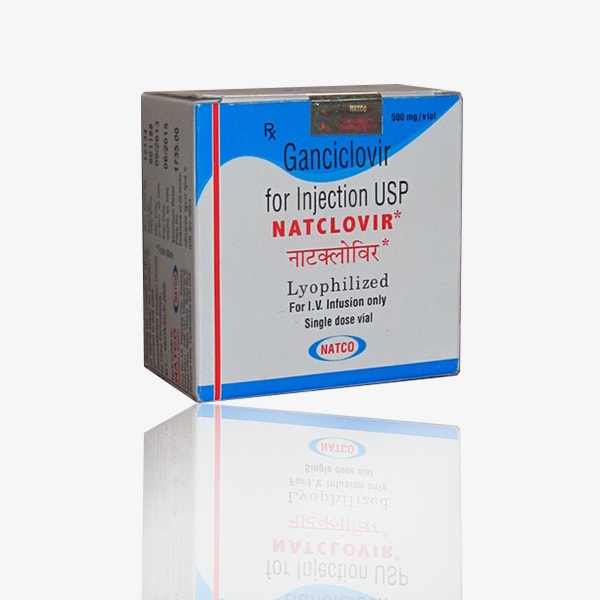
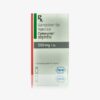

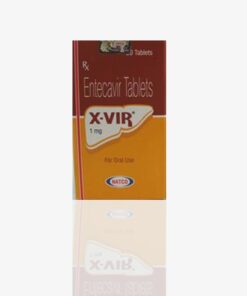
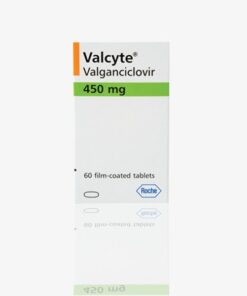
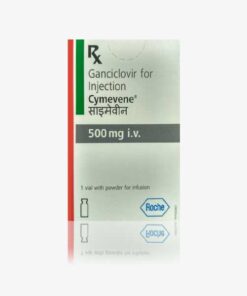
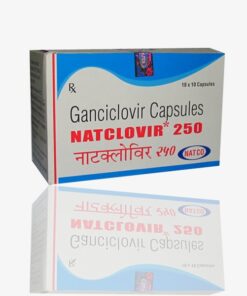
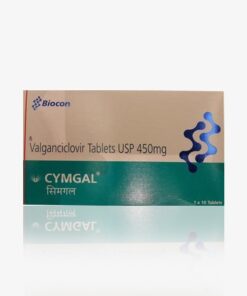
Reviews
There are no reviews yet.